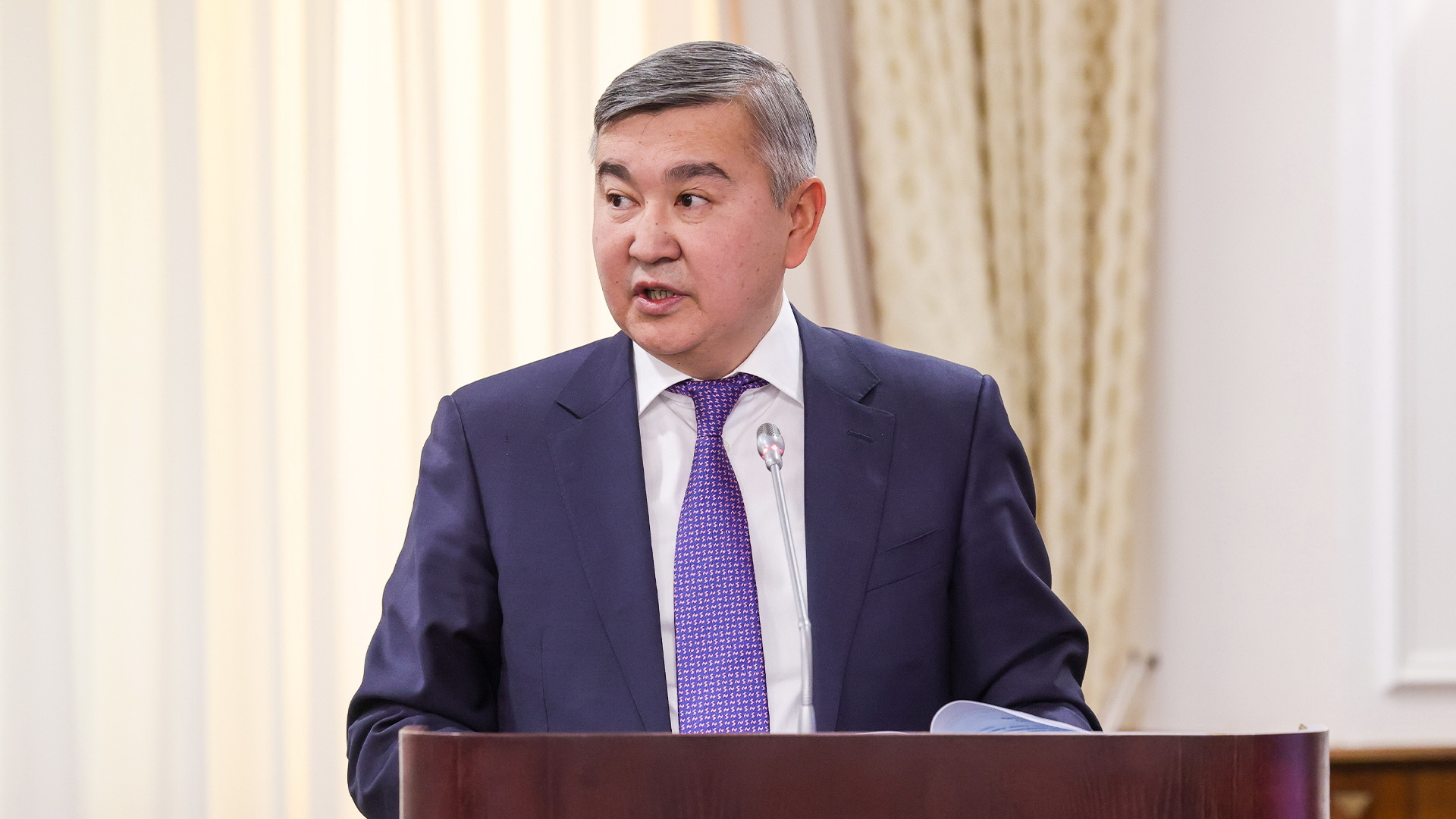ASTANA—Kazakh Deputy Prime Minister and Minister of National Economy, Nurlan Baibazarov, highlighted Kazakhstan’s steady economic growth despite challenges in some industries. In an interview with Primeminister.kz, Baibazarov outlined initiatives such as investment attraction, sectoral development programs, and modernization efforts across sectors.

Nurlan Baibazarov. Photo credit: Primeminister.kz
“The growth rates in individual industries exceed the figures for the same periods last year. However, there are industries with decreased growth rates. The trade sector was the most severely affected,” said Baibazarov.
Baibazarov acknowledged the severe impact of spring floods on Kazakhstan’s trade and logistics sectors, leading to disrupted trade turnover and logistical connections across multiple regions.
Nonetheless, he noted that 99.9% of the plan in terms of oil production is fulfilled, except for the minimal decrease in the production level associated with deposits in the Atyrau Region.
National infrastructure and investment strategy
Baibazarov outlined a comprehensive national infrastructure plan involving over 200 projects, with investments of more than 40 trillion tenge ($86 billion) by 2029. He noted the importance of both domestic and external investments in executing the ambitious plan.
According to Baibazarov, the primary sources and areas for investment are infrastructure, manufacturing, and the agro-industrial complex. The investment necessary to ensure economic growth is estimated to be 9.6 trillion tenge ($20.6 billion). He noted that 7 trillion tenge ($15 billion) in the total budget is due to the non-budgetary sources of investments.
“All the free liquidity that Samruk Kazyna Sovereign Wealth Fund and national managing holding Baiterek have is devoted to the growth program,” said Baibazarov.
Other long-term concessional financing sources include funds from second-tier banks, institutional domestic investors, international financial institutions, and private investors.
Boosting manufacturing through industrial projects
“The development of the manufacturing industry can be divided into two parts. The first part involves new production facilities or reconstructing existing ones. The second part focuses on maximizing established or modernized enterprises,” said Baibazarov.
The ministry’s focus includes major projects in metallurgy, oil and gas chemistry, the chemical industry, mechanical engineering, and tourism. Baibazarov mentioned that work on large industrial projects totaling 15 trillion tenge ($32 billion) is underway.
To ensure the established or modernized enterprises are fully utilized, Baibazarov noted that there should be a demand for products from domestic manufacturers.
“The public and private sectors create this demand. We have what is known as regulated procurement, which includes public and quasi-public sector procurement and the purchases of subsurface users. This is a huge market, estimated at more than 20 trillion tenge ($43 billion),” said Baibazarov.
Support for agro-industrial development
Baibazarov highlighted the government’s support for the agro-industrial complex through preferential credit conditions and leasing programs. These initiatives aim to enhance agricultural production by facilitating access to modern agricultural machinery.
“Farmers can now access preferential loans at 5% interest per annum in tenge,” he said.
He also mentioned that Baiterek Holding recently introduced a new leasing program to upgrade agricultural machinery. This program supports the domestic production of agricultural machinery, thereby boosting orders for local manufacturers.
Decree on economic liberalization
Discussing President Kassym-Jomart Tokayev’s decree on economic liberalization, signed on May 10, Baibazarov highlighted its significance in reducing government interference and promoting competition.
“The main direction of this decree is to decrease the state’s share in the economy, which currently exceeds 40%. The decree aims to achieve this reduction through the privatization of state assets by the end of 2028, to be carried out in stages,” Baibazarov said.
To facilitate this economic liberalization process, the National Office for Privatization was established at the Kazakh Agency for Protection and Promotion of Competition.
“By the end of this year, the office’s primary task is to conduct a comprehensive audit of all state assets,” he added
This audit will analyze the assets’ relevance to the economy and assess their current condition and effectiveness. Following the audit, the National Office for Privatization will complete a list of state assets eligible for privatization. This list will serve as the basis for the privatization process, following the objectives outlined in the decree.
The second part of the decree focuses on fostering competition by eliminating regulations and restrictions that interfere with establishing market prices. This includes reducing cross-subsidization practices, where one industry’s income subsidizes other sectors of the economy.
This strategic approach encourages private investment, enhances market dynamics, and sustains long-term economic growth.
